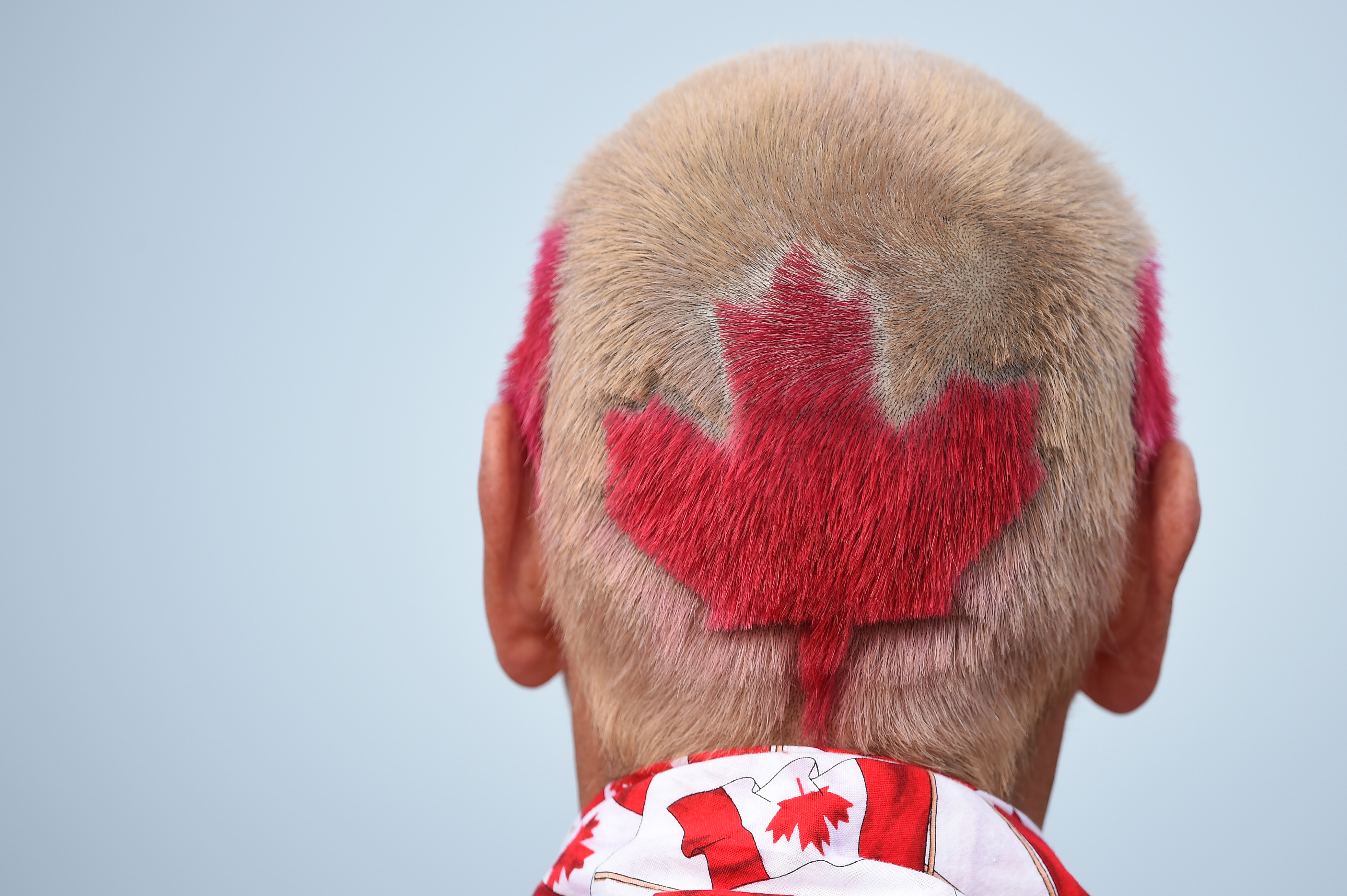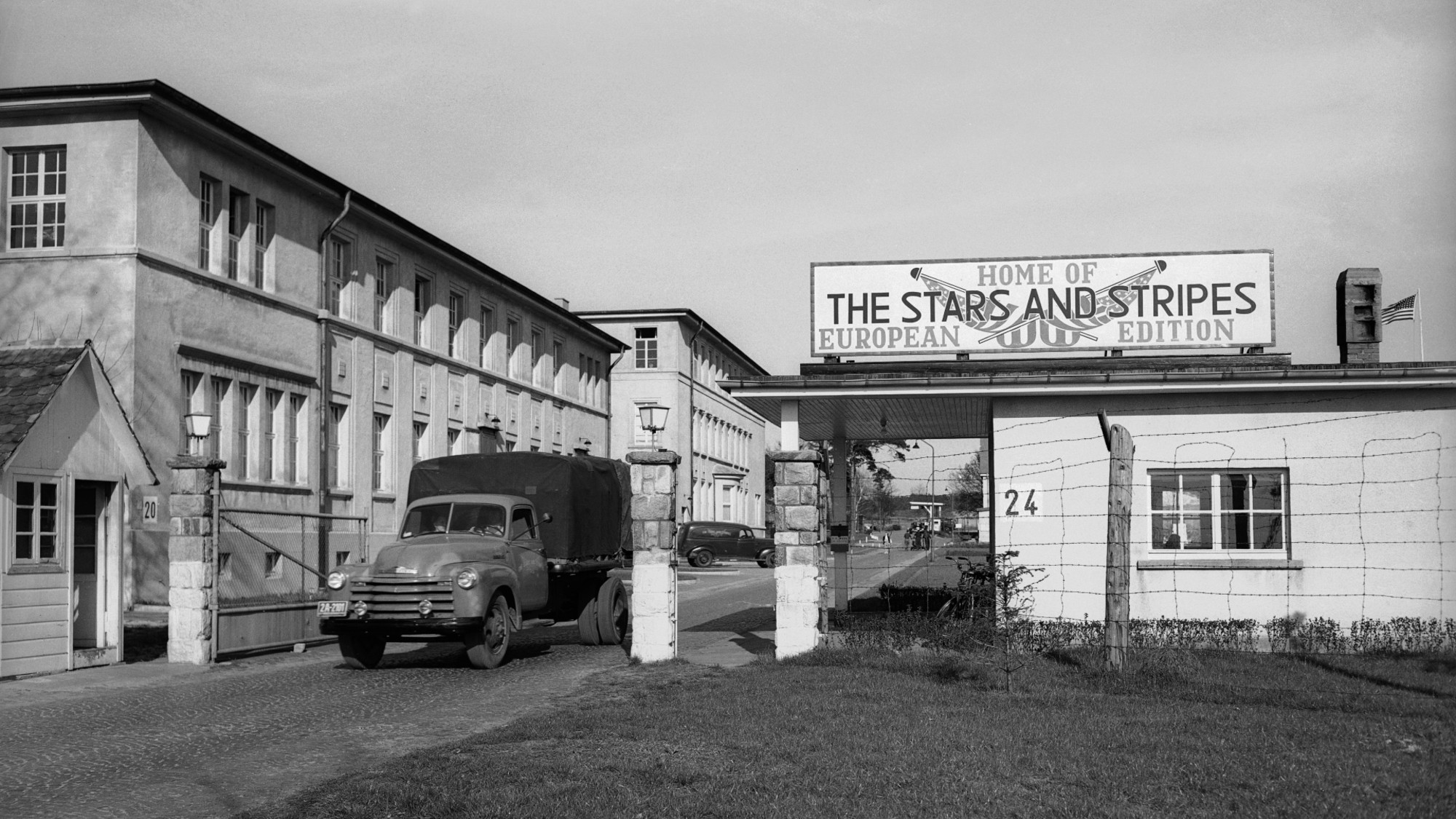The peculiar nationalism of Canada
Canada has constructed a workable liberal nationalism in the age of mass-migration and populist backlash. Can America learn from it?


In the summer of 2003, in the wake of America's attack on Iraq, many passionate opponents of that war greeted the approach of Independence Day with ambivalence if not outright bitterness. I myself knew plenty of people who verbalized their fantasies about moving to Canada.
In fact, I had one friend who took the idea a step further, and moved Canada here. On July 1, he celebrated what he called "Temporary Canada Day." He decked out his Hudson Valley home in red and white bunting and maple leaf flags, and declared it temporarily part of our northern neighbor. Lastly, he set up a consular office on his front lawn where guests could fill out paperwork for visas or even receive a temporary Canadian passport. Then, once passed customs, guests could drink Molsons and play uphill lawn bowling, and relax into their new identity, separated finally from their suddenly terrifying fellow Americans.
I don't know whether he's planning to revive the holiday this year. If he did, it would certainly be in keeping with the despairing mood of many liberals in the Trump era.
The Week
Escape your echo chamber. Get the facts behind the news, plus analysis from multiple perspectives.

Sign up for The Week's Free Newsletters
From our morning news briefing to a weekly Good News Newsletter, get the best of The Week delivered directly to your inbox.
From our morning news briefing to a weekly Good News Newsletter, get the best of The Week delivered directly to your inbox.
But this year, Canada may deserve to be examined as more than just a liberal fantasy object. Canada, after all, is a real place, with its own history and culture and way of doing things, and a strong if peculiar nationalism of its own. And yet it is also one of the most diverse countries in the world, with nearly twice the percentage of foreign-born residents that America has. If Canada has figured out how to construct a workable liberal nationalism in the age of mass migration and populist backlash, maybe America has something to learn from it?
Celebrating its 150th birthday this weekend, the gentle giant to the north may finally be ready for its close up. But a close look reveals that it might be harder for Americans to copy it than our own liberals might wish.
Start with that claim to be 150 years old this Saturday. July 1 does not mark a decisive moment in Canada's history the way July 4 does for America. Rather, it marks a somewhat arbitrary point in the territory's political evolution, and, most importantly, not one of Canada's own making.
The British North America Act of 1867 simply reorganized British possessions, dividing what was previously the colony of Canada into two provinces — French-speaking Quebec and English-speaking Ontario — united in confederation with formerly separate colonies of Nova Scotia and New Brunswick. It wasn't until the Statute of Westminster in 1931 that Canada gained true legislative autonomy, and not until 1982 that Canada asserted full control over its own constitution. And of course Canada still acknowledges Queen Elizabeth II as its formal head of state.
A free daily email with the biggest news stories of the day – and the best features from TheWeek.com
Canada, in other words, doesn't have a founding moment like America's, subject to continuous debate about its true meaning. Nor does it have to live up to a historic moment of extraordinary self-assertion. Canada has become itself over time, slowly accumulating its own experience and its own authority. So it's perhaps unsurprising that it is relatively accepting of continuing that evolutionary process.
America and Canada are similar in that both were founded as unions of disparate parts. And both America and Canada have deep fault lines running through their countries that at times have threatened to tear them apart. But the nature of those fault lines are radically different, with very different historical consequences.
America was divided from the first between slave states and free. This division could perhaps have been sustained if neither section harbored any ambitions of expansion, but both did. The Southern "Slave Power" never felt secure unless it could perpetually extend its reach, and the global economic and political ambitions of the burgeoning North could not be satisfied unless the union was kept whole and increasingly integrated. The result was a civil war that ended in a far more unitary conception of the American constitution than most of the founders had contemplated, and a national identity that continues to be contested over questions that ultimately trace back to race.
Canada, by contrast, was divided primarily by language. For much of its history, this meant the dominance of English-speaking Canada, but Quebec preserved a distinct society that, as Canada became more and more able to decide matters for itself, was increasingly inclined to assert, and to demand special protections for. Partly as a result of this history, Canada has a far more decentralized system of government than America does, and Quebec has the kind of distinct powers that John C. Calhoun would have approved of. But because these are deployed in defense of linguistic difference rather than chattel slavery, they don't suffer from the moral taint that they do in the American context.
Moreover, Canada's solution to the problem of biculturalism laid the groundwork for becoming what it now is: a truly multi-cultural society, something America historically resisted, preferring a model of integration by assimilation. Immigrant groups in Canada have a model, in Francophone Canada, of how to remain corporately distinct while integrating into the existing political structure. And now, with such a multifarious collection of immigrant communities, the politics of Canada's most diverse provinces in some ways resemble those of a highly diverse American city like New York or Los Angeles, where, just as Madison predicted in Federalist No. 10, the general interest emerges from the competition among factions, none of whom are large enough to become exclusively dominant.
The biggest difference between Canada and America, though, is that America has no America either to shelter behind or to define itself against.
From the beginning, when loyalists to the British crown scrambled over the Niagara escarpment, Canadian identity has substantially consisted of being not American. But as a much smaller and weaker country, Canada has had no choice but to accommodate itself to America's needs. Meanwhile America hasn't had any reason to worry about a threat from then-British Canada since at least the 1920s, if not the 19th century. Our settled and demilitarized border is a great achievement, but also a relatively easy one for two countries with so much in common economically and culturally, but such a large disparity in power as to make true rivalry implausible.
Meanwhile, admirers of Canada's embrace of diversity likely underrate the importance of Canada's isolation to the relative success of its multicultural project. Canada, like America, is bordered by oceans on two sides (three counting the Arctic). But America borders Mexico to the south, while Canada borders America. America's problem of undocumented immigration is largely the consequence of rapid population growth in Mexico combined with economic development that made travel to America more plausible but that didn't raise incomes quickly enough to encourage more Mexicans to make their fortunes at home. Canada has the luxury of being able to readily control who comes into their country, and they have taken the opportunity to be quite selective about who they choose to admit. In spite of the fact that Canada admits far more immigrants per-capita than America, American immigration restrictionists often point to Canada as an exemplar of a rational immigration policy that puts the interests of citizens first. But would Canada have been able to be simultaneously so selective and so liberal if they had to confront large-scale undocumented migration from a single country?
Populism is not going to ignore Canada entirely. It was only a few months ago that some observers worried about the Trumpification of Canada's Conservative Party, which instead has turned more towards traditional religious conservatives somewhat in the manner of France's Republicans. But to the extent that Canada is insulated from its effects, that has more to do with the idiosyncrasies of its history and geography than with any lessons that can be easily applied by Americans upset at Trump.
But there is another part of the world being roiled by populism that might benefit more from examining the Canadian experience than America would. Europe has been struggling to find a way to preserve distinct national societies within a confederal framework, a struggle that mass migration has made far more fraught. And it has also struggled to define a distinct collective identity vis-a-vis a sometimes overbearing America without threatening cordial relations. Europeans looking at the Canadian example might come to some useful conclusions about the importance of selectivity in immigration, and of pairing refugees with native sponsors — but they might also learn something about the importance of limiting bureaucratic centralism in making a confederation work.
American liberals may continue to look north with longing. But perhaps this year, my friend should celebrate Temporary Canada day in Paris, or Berlin.
Noah Millman is a screenwriter and filmmaker, a political columnist and a critic. From 2012 through 2017 he was a senior editor and featured blogger at The American Conservative. His work has also appeared in The New York Times Book Review, Politico, USA Today, The New Republic, The Weekly Standard, Foreign Policy, Modern Age, First Things, and the Jewish Review of Books, among other publications. Noah lives in Brooklyn with his wife and son.
-
 Why is the Pentagon taking over the military’s independent newspaper?
Why is the Pentagon taking over the military’s independent newspaper?Today’s Big Question Stars and Stripes is published by the Defense Department but is editorially independent
-
 How Mars influences Earth’s climate
How Mars influences Earth’s climateThe explainer A pull in the right direction
-
 ‘The science is clear’
‘The science is clear’Instant Opinion Opinion, comment and editorials of the day
-
 Why Greenland’s natural resources are nearly impossible to mine
Why Greenland’s natural resources are nearly impossible to mineThe Explainer The country’s natural landscape makes the task extremely difficult
-
 Iran cuts internet as protests escalate
Iran cuts internet as protests escalateSpeed Reada Government buildings across the country have been set on fire
-
 US nabs ‘shadow’ tanker claimed by Russia
US nabs ‘shadow’ tanker claimed by RussiaSpeed Read The ship was one of two vessels seized by the US military
-
 How Bulgaria’s government fell amid mass protests
How Bulgaria’s government fell amid mass protestsThe Explainer The country’s prime minister resigned as part of the fallout
-
 Femicide: Italy’s newest crime
Femicide: Italy’s newest crimeThe Explainer Landmark law to criminalise murder of a woman as an ‘act of hatred’ or ‘subjugation’ but critics say Italy is still deeply patriarchal
-
 Brazil’s Bolsonaro behind bars after appeals run out
Brazil’s Bolsonaro behind bars after appeals run outSpeed Read He will serve 27 years in prison
-
 Americans traveling abroad face renewed criticism in the Trump era
Americans traveling abroad face renewed criticism in the Trump eraThe Explainer Some of Trump’s behavior has Americans being questioned
-
 Nigeria confused by Trump invasion threat
Nigeria confused by Trump invasion threatSpeed Read Trump has claimed the country is persecuting Christians
